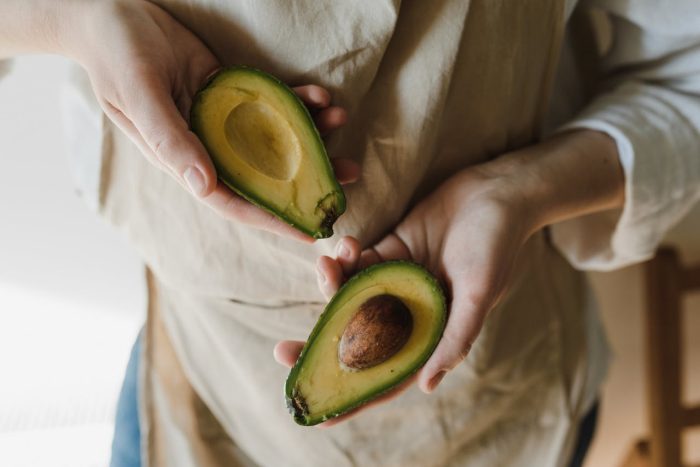
{*Did you know you can write on Elephant? Here’s how—big changes: How to Write & Make Money or at least Be of Benefit on Elephant. ~ Waylon}
~
*Editor’s Note: Elephant is not your doctor or hospital. Our lawyers would say “this web site is not designed to, and should not be construed to provide medical advice, professional diagnosis, opinion, or treatment to you or any other individual, and is not intended as a substitute for medical or professional care and treatment. Always consult a health professional before trying out new home therapies or changing your diet.” But we can’t afford lawyers, and you knew all that. ~ Ed
~
Aristotle, the ancient Greek philosopher and scientist once said, “In all things of nature there is something of the marvelous.”
Knowing what we know about the natural world and how thoroughly it sustains us, how could we ever deny its magnificence and benevolence? The air that we breathe not only provides essential oxygen, but also helps to regulate body temperature and supports the biochemical processes vital for life itself.
Water, not only pertinent for hydration, is a catalyst for absorption of nutrients, digestion, and for the removal of waste through urine. Trees and plants prevent soil erosion at their roots and mitigate climate change by decreasing the atmospheric levels of greenhouse gases.
Another wonder of nature that is important to sustaining life is, of course, food. However, in the 20th century, food became less of a source of nutrients and more of a hazard with the rise of industrialization.
So, why did processed foods ever enter the market, you ask? Convenience, preservation, and economic efficiency, to name a few. Yet despite bulk production lending more economic viability, we have become sicker and sicker. One huge culprit is the big sugar industry.
The size of the global sugar market in 2023 was estimated at 66.39 billion and is expected to grow between 2024 and 2030 at a CAGR of 6.5%. Furthermore, the United States alone is a huge producer of sugar, producing sugar beets, sugarcane, and operating sugar refineries, among other things. High fructose corn syrup, refined sugarcane, and processed sugar beet are added to a medley of sweetened foods and beverages. Worst of all, perhaps, is the fact that it is hidden under a variety of names in the vast majority of packaged foods you would never suspect contained any trace of sugar at all, including in those packaged foods advertised as “healthy,” “vegan,” and “GMO-free.”
While we all know that sugar is not altogether healthy, fewer of us know just how bad it really is in terms of its insidious effects on the health of our metabolism. According to Dr. Robert H. Lustig, on American pediatric endocrinologist and professor of pediatrics at the University of California, San Francisco (UCSF), and author of a few books, including his latest, titled, Metabolical: The Lure and the Lies of Processed Food, Nutrition, and Modern Medicine, sugar is quite plainly a toxin.
In particular, fructose, the sweet molecule that makes it both enticing and addictive, inhibits three mitochondrial enzymes, which produce structures in cells and basically powers them. These enzymes are vital in creating metabolic pathways that generate something called ATP (adenosine triphosphate), which generates energy for an array of cellular processes. This can significantly impair DNA and RNA synthesis and lead to all kinds of cellular dysfunction and death.
In addition to this research is also finding that sugar produces liver fat, which can then accumulate in the blood and cause (non-alcoholic) fatty liver disease, type 2 diabetes, cancer, and cardiovascular disease—all of which are leading causes of death in the United States.
Check out this short video short video by Dr. Jason Fung, a Canadian nephrologist best known for his work on type 2 diabetes and obesity, titled, “Why Fructose causes insulin resistance.”
Personally speaking, I have been on a low-sugar, whole food diet since 2018, and to this day, I still consider it to be the single best decision I ever made for myself. Prior to this dramatic shift in lifestyle, my thyroid was high (meaning I had an under active thyroid gland) and suffered from PCOS (Polycystic ovary syndrome), which in itself is a risk factor for poor glucose metabolism and type 2 diabetes, which runs on one side of my familial line.
Within a month of quitting processed foods and refined sugar, a number of things happened:
1. My little but of stubborn belly fat that I could not seem to get rid of, even with exercise, disappeared.
2. My skin began to glow and radiate good health.
3. My brain fog and chronic fatigue improved.
4. My menstrual cycles went from sparse and irregular to regular and consistent.
5. My anxiety and depression improved.
6. I stopped craving sugar and carbs, which is something I always wanted above and beyond anything else for nearly a quarter of my life.
7. My chronic digestive symptoms improved.
9. My creatnine levels, a measure of kidney function, which were once high-normal according to my blood test, normalized. (This was pretty frightening to see on my blood test at the time, considering I was 25 years old and, as far as I knew, non-diabetic.)
Truth be told, I spent the first 25 years of my life addicted to carbs. I ate pasta nearly every day and couldn’t get enough bread rolls at restaurants. Even as a kid, all I wanted for breakfast was either Belgian waffles or bread with peanut butter and jam. Although I was never a kid who liked coloured candy or soda, I was partial to chocolate bars, cookies, cakes, and pastries. Until the age of 25, I thought: I know I need to clean up my diet. I know this isn’t a sustainable diet, but I’m still young. I have time to do damage control. Plus, I’m not obese.
In hindsight, however, I now know I was doing my body a disservice and am currently following a strict (mostly) ketogenic lifestyle, which includes high dietary fats, a moderate amount of protein, and less than 30 to 50 grams of carbohydrates per day.
On a typical day, I consume the following types of foods, beverages, and oils.
1. Free-range eggs
2. Wild-caught fish
3. Fresh avocados
4. A wide range of grass-fed meats of various kinds
5. Nuts and seeds, like walnuts and almonds, including low-sugar (non-processed) almond butter
6. Celery sticks
7. Cucumbers
8. Fresh (organic) leafy greens, like arugula and spinach (I like to add feta cheese and olive oil)
9. A range of cheeses such as triple crème Brie, which is my favourite kind of cheese
10. Eggplant, which is my favourite vegetable of all
11. Virgin coconut oil (I occasionally cook with or use this oil on higher heat)
12. Virgin olive oil (I never cook with it or heat it, however)
13. Grapeseed oil (I usually cook with this oil and heat it)
14. Avocado oil (I do not heat this oil, either)
15. Water (sometimes I like to squeeze fresh lemon into the glass)
16. Herbal tea (no juices or sodas of any kind whatsoever)
17. On occasion, some berries (I eat my fruit instead of drinking it, which protects the fiber content in the fruit)
18. Green olives
Yes, I know. The ketogenic diet has certainly received a lot of flack in some circles and generated a lot of controversy over the years, but the evidence for fat, even saturated fat, causing heart disease is, at best, extremely weak.
In fact, the ketogenic diet has copious health benefits, which include the following:
1. Weight loss (Yes. I lost weight within the first few weeks on this diet.)
2. Improved blood sugar control (Happy to report that I do not have type 2 diabetes, despite the fact that it runs in my family, or even pre-diabetes.)
3. Improved brain function (I’ve certainly noticed an improvement in my working memory.)
4. Improved energy levels (I feel the urge to move my body and go for more walks every day.)
5. Reduced inflammation (Over all, I feel more metabolically healthy this year than I did the year before when following a Mediterranean diet.)
The war on dietary fat has been booming since the 1960s and 70s. This was largely due to the sugar industry buying off scientists to downplay the health risks of sugar and point the finger at dietary fat.
This then resulted in U.S. dietary guidelines emphasizing a reduction in fat intake, hence what I call the “low-fat craze” we know today. However, they then substituted fat for sugar, and for the last few decades, life expectancy has dropped, despite more technology. Furthermore, according to Dr Lustig, a whopping 93 percent of Americans are metabolically ill, and some may not even know it.
The food and sugar industry want their profits and couldn’t care less about consequences you and your children face as a result of their actions, and this couldn’t be more obvious. Nature, on the other hand, is all we need to prosper and live healthily well into our golden years. Nuts, seeds, wild-caught fish, berries, and plants were all things our earliest ancestors ate, and if we were to time travel and ask them whether or not heart disease, cancer, and diabetes were common among them, they would probably look puzzled and respond with an emphatic no.
I am a firm believer that our life experience can, and even should, be a beautiful one. We weren’t meant to overwork to make shareholders and corporations rich: rather, we were meant to serve our communities, live off of the land, create works of inspiration, and aim for the betterment of humanity.
We weren’t meant to eat packaged or processed foods; instead, we were meant to reap all that Mother Earth provides while in turn, honouring and nurturing Mother Earth by practising sustainable farming.
We weren’t meant to develop chronic diseases and simply accept that as a part of aging. Rather, we were meant to witness the innate intelligence of the physical body itself and bask in awe of its resilience. Health is our natural state, not disease. Sure, the body eventually dies, but we don’t have to die early of chronic illnesses.
However, the powers-that-be do everything they can to make us feel limited and keep us in a dis-empowered state of mind so that we remain addicted to sugar and processed food, therefore keeping money in their pockets—health consequences of their products be damned.
It’s time to rise up and wipe the dust from our eyes once and for all. It’s time to realize that health and longevity matter more than satisfying our unhealthy cravings and eventually getting sick as a result. It’s time to buy whole foods from local farmers markets instead of pouring more money into the hands of these Big Food Industry monsters who don’t care about you or even your children. That, dear reader, is key.
Good health allows us to flourish in this life experience, both physically as well as mentally. If I lost all of my books and clothes tomorrow, I would say: at least I still have my health. Without sound health, there isn’t much we can do, and if I am healthy enough to work until the age of 85, I will consider myself beyond blessed. In fact, I hope I am healthy enough to work beyond 70, because life is a gift and I want to cherish it.
PS. Check out this conversation between Dr. Robert H. Lustig and Ben Grynol below.
~

This account does not have permission to comment on Elephant Journal.
Contact support with questions.